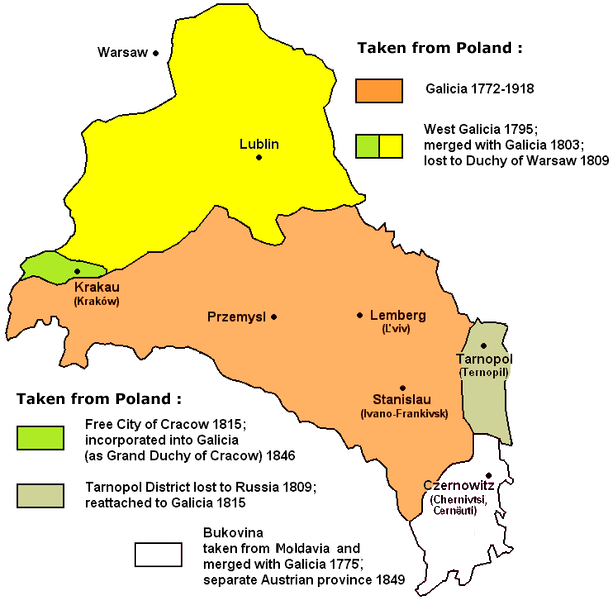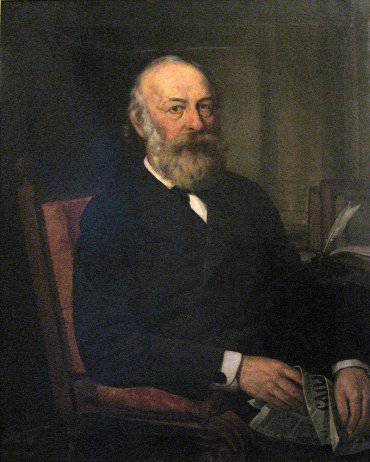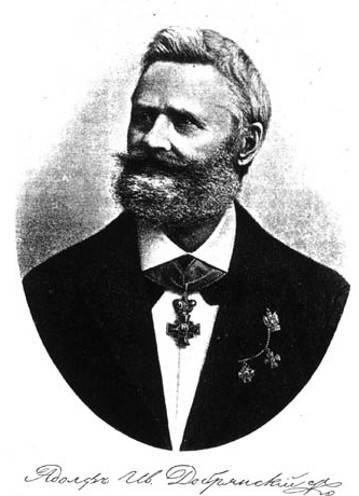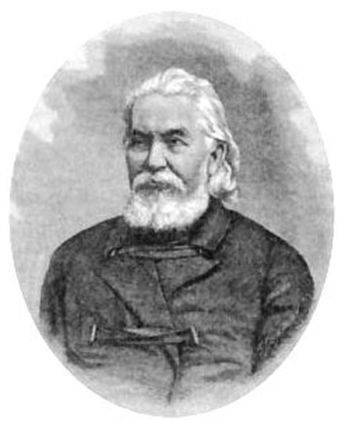Russian idea in the Carpathians: how the inhabitants of Galicia and Ugric Russia fought for unity with Russia
Russian society has become so accustomed to the widespread Russophobic sentiments in Western Ukraine that it is hardly ready to believe that sympathy for Russia and the Russian world as a whole can exist among the Galician population. Meanwhile, the Russophobia of the Galicians, which led them to cooperate with the German Nazis during the Great Patriotic War, to the decade of Bandera gangsterism, to Euromaidan and armed aggression against Donbass, is not inherent in them from the beginning. The anti-Russian sentiment in Galicia was the result of a long and painstaking work of the interested political actors, primarily Austria-Hungary and Germany, in constructing Ukrainian national identity as an opposition to the Russian, that is, Russian identity.
Galician-Volyn lands were once part of the Russian world and, accordingly, there was no question of any Russophobia in this region. The foundations of modern rejection by the mass of the Galicians of the Russian statehood were laid in the period when the lands of Galicia fell under the rule of the Commonwealth and then of Austria-Hungary. Centuries of existence in isolation from the Russian world in themselves did not mean rooting of Russophobia in the mentality of the inhabitants of Western Ukraine. The purposeful policy of the Austro-Hungarian authorities, who started the artificial construction of "Ukrainians" as a tool for splitting the Russian world and countering Russian influence in the Carpathian region, played a much greater role in spreading anti-Russian sentiment.
As is known, the territory of the Carpathians, the Carpathians and the Transcarpathians is inhabited by several ethnic groups of the Eastern Slavs. Conventionally, they can be generalized under the names Galicians and Rusyns. Galicians are the very "zapadentsy" who inhabit Eastern Galicia. They are descendants of the Galician-Volyn principality, whose lands later became divided between Poland, Hungary and Lithuania, then belonged to the Polish-Lithuanian Commonwealth and, finally, up to 1918, belonged to Austria-Hungary under the name "Kingdom of Galicia and Lodomeria".

Territorial changes of the kingdom in 1772 — 1918
Up to the twentieth century, the Rusins called the entire East Slavic population of the region, but today this name is understood primarily as residents of the Carpathian Mountains and Transcarpathia. It also highlights the ethnocultural groups of Boiky, Lemkos, Hutsuls, Dolinyans, Verkhovyns, etc., living both in Western Ukraine and in Romania, Poland, Hungary, and Slovakia. The fighters inhabit the mountainous areas of Lviv and Ivano-Frankivsk regions, their number in 1930 reached at least one hundred thousand people, however, the result of the Ukrainization of the Ruthenians in Soviet times was that today the 131 resident of post-Soviet Ukraine counts itself as a striker.
Hutsuls, in particular, traditionally engaged in grazing, the most interests in terms of preserving archaic folk traditions, giving an idea of the life of the Slavic tribes of the Carpathian Mountains during the millennial prescription. They inhabit the territory of Ivano-Frankivsk, Chernivtsi and Transcarpathian regions. The total number of people who identify themselves as Hutsuls is in Ukraine 21,4 is thousands of people. Hutsuls also live in Romania, where 3 890 people count. In fact, most of the Hutsuls were Ukrainianized during the Soviet era and currently identify themselves with the Ukrainians.
Lemks who inhabit the junction of the borders of Poland, Slovakia and Ukraine, to a greater extent retain the Ruthenian identity, preferring to separate themselves into a separate ethnic group. Their numbers range from 5-6 to thousands of people. Polish Lemko prefer to define themselves as a separate people, whereas the Lemkies of Ukraine living in the Lviv region, were Ukrainians during the years of Soviet power and now call themselves Ukrainians.
Despite numerous political upheavals, as a result of which the Carpathian lands passed from one host to another, from Hungary to Poland, from Poland to Austria-Hungary, their population preserved the Russian self-consciousness for centuries. Residents of the Carpathians and the Carpathians considered themselves as an integral part of the Russian world, as evidenced by their self-names - “Ruthenian”, “Rus”, “Rusyns”, “Chervonorossy”. The word "Ukrainians" in the vocabulary of the population of Galicia and Transcarpathia was absent until the end of the XIX century.
Naturally, the Russian self-awareness of the indigenous population of the region has never aroused much enthusiasm among the Polish and Hungarian kings, the Austro-Hungarian emperors who owned the Carpathian lands. Preservation of Russian identity among the Eastern Slavic population of the Carpathians and the Carpathians meant a constant risk of strengthening the position of Russia in the region, up to the full return of these territories to the orbit of Russian statehood. For obvious reasons, neither Austria-Hungary, nor Prussia, nor other European powers were satisfied with this development and they were ready to make any efforts only to weaken the political and cultural influence of the Russian Empire in Eastern Europe.
The stronger the Russian state became, the more actively it took care of the Slav brothers, whether it was the Bulgarians or the Serbs who resisted the Ottoman Empire’s yoke, the Czechs and Slovaks who lived under the heel of Austria-Hungary, or the same people of the Carpathians. Moreover, the latter did not separate themselves from other Russians at all, using the same ethnonym as their self-name.
The rise of national identity in the countries of Eastern Europe came in the middle of the XIX century. Revolution 1848-1849's. led to the birth of powerful national liberation movements in the Austro-Hungarian Empire - Italian, Hungarian, Czechoslovak. Not an exception and the territory of modern Western Ukraine. Here Russophile sentiments, expressed in the formation of the political Russian movement in Galicia, became widespread. The public figures of Galicia, who managed to visit the Russian Empire, were admired by the similarity of the Russian language with the dialects of the Carpathian Ruthenians and Galicians, who at that time were united under the name "Ruski". At the end of the XIX century, the literary Russian language became widespread in the Galician lands. There was even a whole Russian-speaking growth of writers of Galicia and Transcarpathia, whose traditions are still partly preserved, despite a whole century of Ukrainization.
 The growing political power of the Russian Empire also did not go unnoticed by the Galician public, who saw in it the long-awaited liberator from the dictatorship of Austro-Hungarians alien to the linguistic and ethno-cultural respect. It should be noted that it was in the 19th century that the Russian Empire finally turned into a world-class power, whose natural interests included, first of all, the lands inhabited by Slavic-speaking inhabitants, as well as the territories adjacent to the borders of the Russian state.
The growing political power of the Russian Empire also did not go unnoticed by the Galician public, who saw in it the long-awaited liberator from the dictatorship of Austro-Hungarians alien to the linguistic and ethno-cultural respect. It should be noted that it was in the 19th century that the Russian Empire finally turned into a world-class power, whose natural interests included, first of all, the lands inhabited by Slavic-speaking inhabitants, as well as the territories adjacent to the borders of the Russian state. The further strengthening of pro-Russian sentiment in the Carpathian region was facilitated by the intensification of the Russian military-political presence in Eastern Europe. Residents of the Carpathians have seen that Russia is assisting the Bulgarians, Serbs, and other Slavic peoples who resist the Ottoman Empire. Accordingly, there was hope for the participation of the Russian Empire in the fate of the Slavic population of Austria-Hungary. K 1850-1860-m. The appearance of several pro-Russian prints in Galicia.
Bogdan Andreevich Deditsky is considered the founder of journalism in the Galician lands. At the age of twenty-two, he met the priest of the Russian army that was passing through the territory of Galicia to the Austro-Hungary. This meeting had a key impact on the whole future life of Deditsky. He became an ardent supporter of the integration of Galician Russia with the Russian Empire, stressing the need to spread the Great Russian language in the Carpathian lands. The idea of the Austro-Hungarian government about introducing the Latin alphabet for the Galician-Russian language was sharply critical of Deditsky. The latter measure was considered by the Austro-Hungarian leadership as a tool to alienate Galicia from the Russian world culturally, which Deditsky, who remained a staunch supporter of the use of the Cyrillic alphabet, understood perfectly well.
 In Transcarpathia, the pro-Russian social movement was led by Adolf I. Dobriansky. This descendant of the ancient gentry kind was educated at the philosophical and then at the law faculties. During his studies, his acquaintance with the world of Great Russian culture took place. Rusin Dobriansky was a Uniate by religion, but with great sympathy for Orthodoxy and was convinced of the need for a gradual transition of Uniates back to the Orthodox faith. This was facilitated by his close contacts with the Serbian community.
In Transcarpathia, the pro-Russian social movement was led by Adolf I. Dobriansky. This descendant of the ancient gentry kind was educated at the philosophical and then at the law faculties. During his studies, his acquaintance with the world of Great Russian culture took place. Rusin Dobriansky was a Uniate by religion, but with great sympathy for Orthodoxy and was convinced of the need for a gradual transition of Uniates back to the Orthodox faith. This was facilitated by his close contacts with the Serbian community. One of the priorities, in the opinion of Dobriansky, was the unification of Ugric Russia, which was part of the Hungarian kingdom, with Galicia, which formed the Kingdom of Galicia and Lodomeria. This step, according to the public figure, would contribute to the unification of all the Rusins of the Austro-Hungarian Empire in a single territorial entity. Naturally, the Austro-Hungarian authorities rejected such proposals, since they were well aware that the disunity of the Ruthenian lands provided an excellent basis for maintaining their domination over the Carpathian territories, and the unification of Galician and Ugric Russia would lead to the activation of separatist sentiments that would be beneficial for the Russian state.
Dobriansky’s political positions also aroused hatred among the Magyar nationalists, who saw in his programs for the development of Ugric Russia and its reunification with Galician Russia a direct threat to the Hungarian interests in the region. The logical result of the pro-Russian activities Dobryansky was an attempt on his life. In 1871, in the center of Uzhgorod, where Dobriansky and his family lived at that time, his crew was attacked by the Magyar nationalists. The son of Adolf Dobriansky Miroslav was seriously injured. Nevertheless, the brave patriot of Carpathian Rus did not stop his public activities. He published the Political Program for Austrian Russia, which was based on deep conviction in the unity of the Eastern Slavic peoples - Great Russians, Little Russians and Belarusians.
According to Dobryansky, the Carpathian and Galician Rusyns are as much a part of the united Russian people as the Great Russians, Byelorussians and Little Russians. Accordingly, the Russian culture in Galicia and Ugrian Russia needs to be fully promoted and spread. In the formation of a separate Little Russian (Ukrainian) language and its intensified propaganda by supporters of “Ukrainians” Dobriansky saw the interests of the German world, which was trying to prevent Russia from strengthening its position in the Carpathian region and splintering Little Russia from it. As it turned out later, these thoughts of a Ruthenian public figure were prophetic.
 Another prominent figure in the Galician Rus movement was priest Ivan G. Naumovich. The modest village priest, Ivan Naumovich, belonged to the Uniate Church, but was an ardent supporter of the rapprochement of the Uniates with the Orthodox Church, with the prospect of a gradual reunion with Orthodoxy. The political activity of Naumovich was to actively participate in the affairs of the Russian movement of Galicia. This amazing man was also a poet, a writer and a fabulist, one of the founders of Galician-Russian literature.
Another prominent figure in the Galician Rus movement was priest Ivan G. Naumovich. The modest village priest, Ivan Naumovich, belonged to the Uniate Church, but was an ardent supporter of the rapprochement of the Uniates with the Orthodox Church, with the prospect of a gradual reunion with Orthodoxy. The political activity of Naumovich was to actively participate in the affairs of the Russian movement of Galicia. This amazing man was also a poet, a writer and a fabulist, one of the founders of Galician-Russian literature. Ivan Naumovich advocated the unity of all East Slavic peoples, which he regarded as one Russian people. According to Naumovich, “Rus Galitskaya, Ugorskaya, Kievskaya, Moskovskaya, Tobolskaya, etc. from the point of view of ethnographic, historical"linguistic, literary, ceremonial - this is one and the same Russia ... We cannot separate the Chinese wall from our brothers and refuse linguistic, literary and popular communication with the whole Russian world." For active pro-Russian activities, Ivan Naumovich was excommunicated by the Pope and in 1885, at the age of sixty, he converted to Orthodoxy. After moving to the Russian Empire, he continued to serve as a village priest in the Kiev province, where he was buried in 1891.
The proliferation of pro-Russian sentiments in Galicia and Transcarpathia provoked an extremely negative reaction of the Austro-Hungarian authorities, which switched to direct repressions against representatives of the Russian movement. In 1882, the victim of Austro-Hungarian repression against the Russian movement was Dobriansky himself, his daughter Olga Grabar and several like-minded people. The reason for the initiation of proceedings was the story of the transition to Orthodoxy of the peasants of the Galician village of Gnilichki. Previously, the villagers belonged to the Greek Catholic Church. Having wished to create their own separate parish in the village, they turned to the landowner Count Jerome Della Scala.
The landowner, a Romanian by nationality, professed Orthodoxy and advised the peasants also to adopt the Orthodox faith. The peasants turned for advice to the well-known Uniate priest Ivan Naumovich, who sympathized with the Russian movement and, naturally, assured the peasants that Orthodoxy is the primordial Ruthenian faith, therefore the conversion to Orthodoxy is a return to the sources and even desirable. This incident caused serious suspicions of the Austro-Hungarian authorities, who saw in the mass conversion of the peasants to Orthodoxy the result of the subversive activities of the pro-Russian organizations.
Since at that time Adolf Dobriansky and his daughter Olga Grabar were in Lviv, the first suspicion fell on them. Not only Adolf Dobriansky and Ivan Naumovich were arrested, but also Olga Grabar, as well as eight other prominent figures of the Russian movement - Olexa Zalutsky, Osip Markov, Vladimir Naumovich, Apollon Nichai, Nikolai Ogonovsky, Venedikt Ploshansky, Isidor Trembitsky and Ivan Shpunder. The main charge was that the defendants claimed the unity of the Rusins and the Russian people. The jurors were specially selected from among the Poles and Jews, since the Ruthenians could make a decision, guided by national solidarity. However, treason charges were challenged by talented lawyers defending the defendants. As a result, part of the activists were released, Ivan Naumovich, Venedikt Ploshchansky, Oleksa Zalusky and Ivan Shpunder were convicted of disturbing public order and received insignificant sentences in 8, 5, 3 and 3 imprisonment months, respectively.
The process of Olga Grabar was not the only example of attempts by the Austro-Hungarian leadership to destroy the pro-Russian movement in the Galician and Transcarpathian lands. Periodically, activists of Russian organizations were persecuted, searches were carried out in their apartments, and print publications were closed, aimed at promoting Russian unity. An important role in counteracting the Russian movement was played by the Catholic clergy, who tried by any means to prevent the spread of Orthodoxy in the Carpathian lands and the conversion of the Uniate flock to the Orthodox faith. On the other hand, in opposing the Russian movement, the Austro-Hungarian authorities used the potential of the Poles, who constituted the majority of the population of Western Galicia and were negative towards the Galicians.
Much more serious repressions against the Russian movement in Galicia and Ugric Russia followed the outbreak of the First World War, in which Austria-Hungary opposed the Russian Empire. During the war years, pro-Russian activists did not get off with such liberal sentences as during the process of Olga Grabar. The exact number of Rusyns executed by the decision of the Austro-Hungarian military tribunals or killed in concentration camps is still unknown. Only from the nameless cemetery in Talerhof were the bodies of 1767 people killed by Austro-Hungarians taken. Thus, the Austro-Hungarian empire, in an attempt to eradicate Russian influence in Galicia and Transcarpathia, turned to open massacres, the victims of which were not only political activists, but also any suspected Ruthenians and Galicians, first of all - Orthodox believers.
In parallel with the repression against the Russian movement, Austria-Hungary artificially cultivated the concept of "Ukrainians" in the territory of Galicia and Transcarpathia. An important role in the formation of the concept of "Ukrainians" was played by the Greek Catholic Church, who feared strengthening the positions of Orthodoxy due to the self-identification of the Ruthenians with the Russian people. At least in the 1890 year, the deputies of the Galician Seym Yulian Romanchuk and Anatoly Vakhnyanin stated that the residents of Galician Russia had nothing to do with the Russian people, but were a special Ukrainian nation. This statement was accepted "with a bang" by the Austro-Hungarian authorities. Since then, the concept of "Ukrainians" has become the main argument of Austria-Hungary, Germany, and in the modern world - the United States and its satellites, used in the interests of the destruction of the Russian world.
World War I dealt a severe blow to the positions of the Russian movement in Austria-Hungary. Due to the repressive policies of the Austro-Hungarian authorities, the movement fell into a state of deep crisis. Prints were closed, most of the activists were killed or imprisoned. The Civil War in Russia also contributed to the weakening of the position of the Russian movement in Galicia and Transcarpathia. Like Russian society, Galicians and Carpathian Rusyans split into supporters of the “white” movement and the pro-communist part. Last to cooperate with the Communist Party of Western Ukraine. Nevertheless, in Poland and Czechoslovakia, which after the collapse of Austria-Hungary included the lands of Galicia and Ugric Russia, respectively, Russophile political organizations operated. Polish Russophiles even put forward the idea of creating a Russian federal republic on the lands of Galicia.
The next blow, from which the Russian movement in Galicia and Transcarpathia practically did not recover, was dealt by the Second World War. Hitler's occupation authorities, as well as Hitler’s Hungarian and Romanian allies, also carried out brutal repression against any activists suspected of pro-Soviet sympathies. However, unlike the Galicians, who for the most part supported the armed resistance of the Ukrainian nationalists from the Ukrainian Insurgent Army, the Rusins of Transcarpathia initially took the side of the Soviet Union and fought against Hitler’s Germany and its allies as part of the First Czechoslovak Army Corps. The contribution of the Rusyns, thousands of whom took part in the Great Patriotic War on the side of the Soviet Union, to the victory over Nazi Germany is significant.
The Lemks living in Poland also made a great contribution to the victory over Nazi Germany, deploying a powerful partisan movement back in the 1939 year, after the Nazis attacked Poland. Representatives of the Russian movement in the Ruthenian movement put up heroic resistance to the Nazis, while supporters of the “Ukrainians” concept, having received the support of the German authorities, acted as collaborators.
After 1945, the territories of Galicia and Ugric Rus became part of the Soviet Union and were annexed to the Ukrainian Soviet Socialist Republic. However, the long-awaited accession to the USSR did not become a joy for the Russian movement of Galicia and Transcarpathia. The fact is that the national policy of the Soviet state, which in many respects runs counter to the real interests of the Russian world, provided for the formation of united Soviet nations. At the same time, ethnic groups, who were “unlucky” to become one of the privileged, could shine the only fate - to be assigned to any large “nation”. So, Talyshs and Kurds in Transcaucasia were recorded by Azerbaijanis, Tajiks in Uzbekistan by Uzbeks, Assyrians and Yezidis by Armenians.
Not an exception and the Ukrainian SSR. It was the Soviet government that played the “Ukrainization” of Little Russia, which was perhaps a greater role than the Austro-Hungarian special services or the Petliura and Bandera nationalists. In Galicia and Transcarpathia, the very fact of the existence of Rusyns was completely ignored. Without exception, the Rusins were recorded in passports by Ukrainians, an intensified campaign was launched to eradicate the remnants of Russian identity and instill "Ukrainians", i.e. Ukrainian national identity.
Naturally, the practical implementation of the political and cultural concept of “Ukrainians” required a break of all reminders about relations with the Russian world. Not only the Russian movement itself, but also any memory of the activities of the pro-Russian public movements in Galician and Ugrian Russia, fell under a strict ban. The names “Galician Rus” and “Ugorskaya Rus” were not used in official literature, which also sought to silence in every way the fact that there is a whole Russian cultural tradition in the Galician and Transcarpathian lands.
The consequence of the policy of "Ukrainization", which reached its apogee just in the period of Soviet history, was the destruction of the unity of the Carpathians, or Rusyns. Thus, the ethnic groups of the Boykoks and Hutsuls currently identify themselves as Ukrainians, while the part of the Dolinyans living in the Transcarpathian region of Ukraine continues to call themselves Rusyns.
Only with the collapse of the Soviet Union did the Ruthenian population once again have the opportunity to gradually restore their Russian identity. Galicia, where the processes of Ukrainization, which began in the years of Austro-Hungarian rule, went too far, was actually lost for the Russian world. Today, it is the stronghold of Ukrainian and Ukrainian nationalism, and rare supporters of unity with Russia are at great risk of repeating the fate of their ideological predecessors, who were victims of Austro-Hungarian and Hitler repressions. Moreover, at present it is difficult to talk about the presence in Ukraine of legal mechanisms to resist illegal actions against dissidents, primarily from among pro-Russian activists.
At the same time, in the Transcarpathian region of Ukraine there is hope for the growth of Russian self-consciousness. The Ruthenians of Transcarpathia, developing as a part of Ugrian Russia, retained their name, and even now a significant part of the Ruthenians continue to sympathize with Russia. Thus, the leader of the Ruthenian movement, Peter Getsko, expressed solidarity with the people of the Donetsk and Lugansk republics, also proclaiming the creation of the Republic of Subcarpathian Russia. However, the development of events in the Donetsk-Lugansk scenario in the Transcarpathian region did not follow, which indicates the contradictory mood of the population of the region.
Thus, we see that the current political situation in Western Ukraine is largely a consequence of the artificial planting in the Galician and Transcarpathian lands of the construct "Ukrainians" developed in Austria-Hungary specifically for the purpose of destroying the Russian world and weakening Russian influence in Eastern Europe. If the lands of Galicia developed within the Russian state from the beginning and were not separated from the main core of the Russian world for centuries, the phenomenon of Ukrainian nationalism itself would hardly have been possible.
The bleeding of the Slavs, begun in the Middle Ages, continues at the present time, only Austria-Hungary was replaced by the United States, also interested in the destruction of Russian unity. The people of Galicia and Transcarpathia, once united with Russia, became a victim of manipulation of consciousness and are currently used by external forces to implement anti-Russian policies that will inevitably boomerang in the lives of Western Ukraine itself.
Information